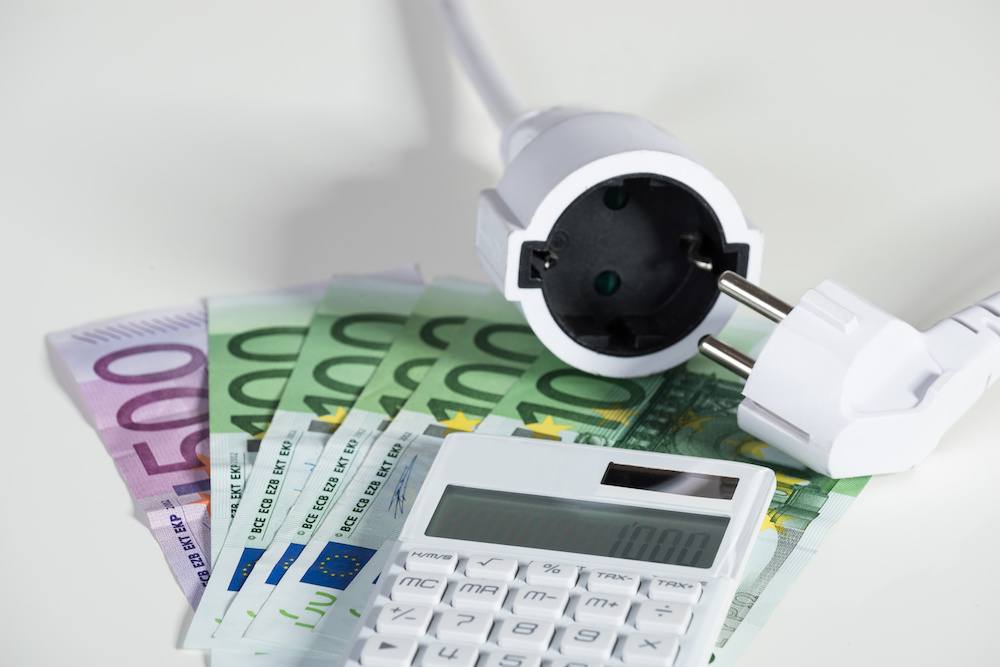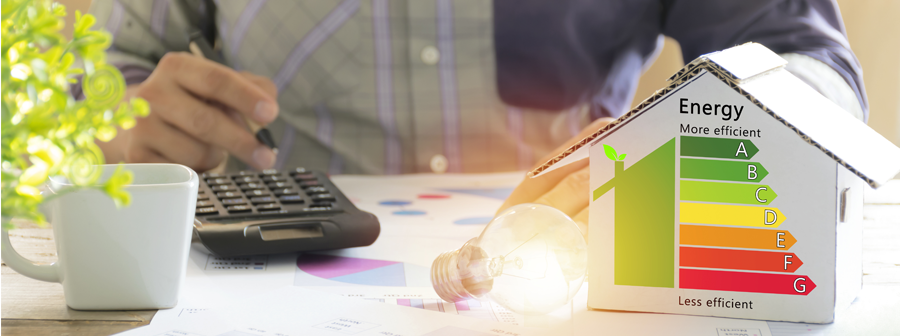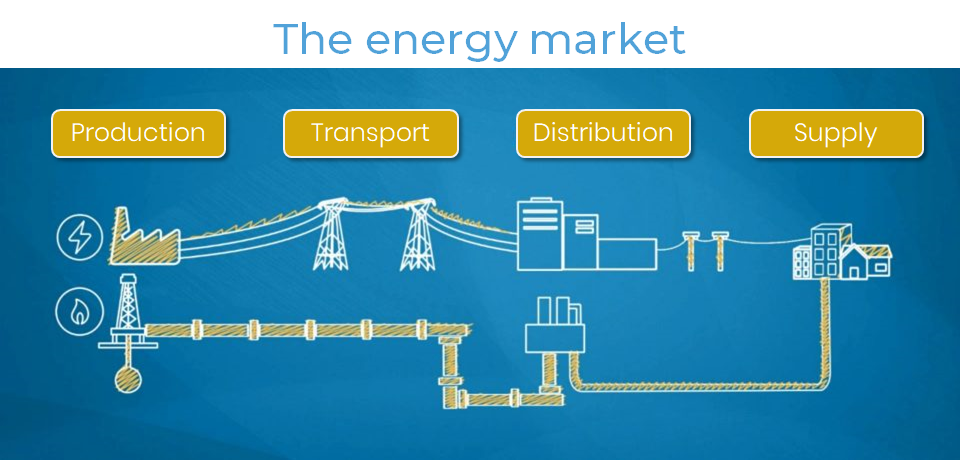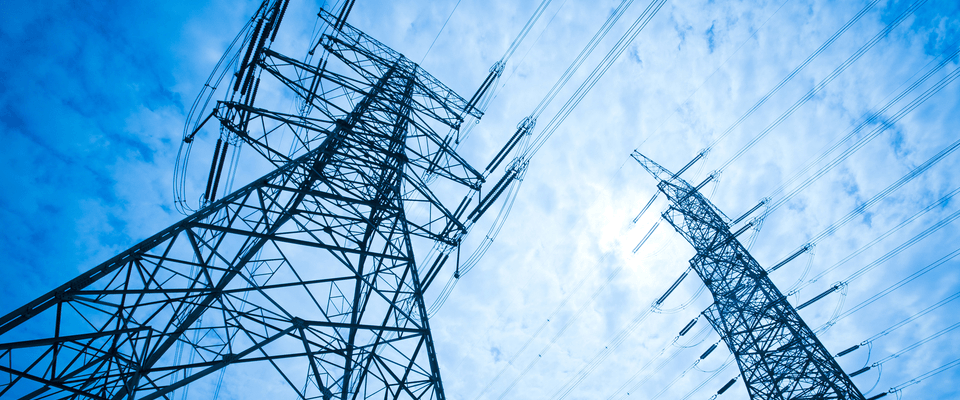
Five practical tips to estimate your electricity use
Empty title
It’s frustrating to think you might be paying over the odds for your energy. The first instinct is often to accuse the electricity supplier or the DSO of inflating prices, or the government of being greedy with taxes. But though they are clearly responsible for a share of your total energy bills, you can make a difference too. It’s only logical: the more kilowatt-hours (kWh) you consume, the more you push up the bill. So what can you do about it? You can start to change things by calculating your current usage. Then you can anticipate upcoming bills and adapt your behaviour accordingly!
1. Read your electricity meter
To keep an eye on your usage or check your supplier’s estimates, all you have to do is read your electricity meter. This is what your supplier does to find out the quantity of energy you have actually consumed over the past year, so why not take advantage of it yourself? Except that if you want to control your spending, it’s a good idea to read the meter more often than your system operator (DSO) asks you to.
Compare now all energy suppliers active in Belgium and save money on your bill !
To do this, calculate the difference between the reading on the meter and the reading for the previous period (e.g. last month). This will quickly show you whether you have managed to sustain your efforts to conserve energy and limit your next adjustment bill. However, some variation is inevitable, especially if you heat your home with electricity. For example, it is only natural that your heating costs will climb sharply in winter.
2. Check how a supplier such as Engie estimates your consumption
Your supplier will estimate your electricity consumption in different ways depending on the situation.
The supplier knows your consumption figures from previous years
Based on previous consumption in the property, whether by you or by previous occupants, your electricity supplier produces an average. If this results in billing that is not relevant to your current situation, you can ask the supplier to review the amount of your instalment bills. This might be useful, for example, if you have recently changed your usage habits or bought or disposed of an energy-intensive appliance. It guarantees that you will not have to pay a large extra amount when you receive the adjustment bill, or to advance money that you could have invested elsewhere.
Naturally, if Engie or another electricity supplier undertakes an inaccurate simulation of your bill and overestimates your consumption, they will refund the excess relative to the number of kWh you have actually consumed.
The supplier has no historical data
Your supplier might not know about your energy spending if, for example, your house has just been connected to the grid for the first time. In this case, they will evaluate the energy consumption of your home item by item and produce a total. As a rule, they will use the following elements for the cost of electricity:
- the area of your house or flat;
- the number of people living there;
- the number of rooms needing lighting;
- the number of rooms needing heating;
- the heating system (electric, gas, oil or wood);
- the domestic hot water system (electric boiler, thermodynamic boiler, gas boiler etc.);
- the number of electrical appliances and their energy ratings.
Discover all the energy suppliers promotions!
Compare electricity and gas prices and switch supplier for free in just a few clicks on Energyprice.be.
However, there are other criteria that are just as important as these but more difficult to quantify. These include the residents’ lifestyle and consumption habits. It is very probable that someone who is at home most of the time will use more energy than someone who is often out. The same goes for a household that sets the living room temperature to more than 20°C, while another is happy with 19°C.
What’s more, it seems obvious that insulation is fundamental among ways to conserve energy. A house where heat loss is significant will be more costly to heat.
What’s next ?
Once the supplier has estimated your future annual consumption, they calculate the amount of your electricity bill. To do this, they multiply the calculated number of kWh by the price of one kWh of electricity, which is stated in your contract. This total cost of electricity is then divided over the year.
3. Run a simulation of your electricity consumption yourself
It has to be said that calculating your average electricity consumption isn’t the simplest of tasks. It involves estimating the quantity of energy used for each consumption category. It’s worth the effort, though, because in the end you will know which of your requirements are the most costly.
To find out the approximate total number of kWh consumed, you have two options: use an online electricity usage calculator that asks you to fill in a questionnaire, or carry out the calculation yourself. If you decide to opt for the second solution, here are a few reference points to help you*:
- Electric heating: in general, expect an average of 110 kWh/m²per year, though of course the figure can be higher or lower depending on your lifestyle and home insulation.
- Electric cooking (hob and oven): about 175 kWh per year for a single person. Induction and ceramic hobs should use less energy than conventional electric hobs.
- Lighting and appliances: about 1,400 kWh per year for a single person, depending on the number of low-energy light bulbs you have and the energy rating of your appliances.
- Electric water heating: about 1,100 kWh per year for a single person, depending on your consumption habits.
*Estimates based on consumption data supplied by CWaPE and “Climate, Air and Energy” published by ADEME (PDF), published in June 2016.
Which energy supplier suits you best? Find it out with a simulation!
Need help to measure your energy consumption or estimate your energy costs? Call our advisers on 0800 37 456 – they will be happy to answer your questions from 9 am to 12.30 pm and 1.30 to 5.30 pm Monday to Friday.
4. Calculate the consumption of your electrical appliances
The electricity consumption of an electrical appliance can be calculated based on three figures:
- the power of the appliance (measured in watts);
- the number of hours per day the appliance is in use;
- the number of days per year the appliance is in use.
The calculation is as follows:
Number of hours of use
x Number of days of use
x Power of the appliance/1,000
______
= consumption in kWh
So a 1,500 watt vacuum cleaner operating for 2 hours a week will have an annual consumption of 2 x 52 x (1,500 / 1,000) = 156 kWh.
5. Check the average electricity consumption figures for Belgium
| Type of customer | Annual consumption in kWh |
|---|---|
| Small consumer (studio/flat with lighting, refrigerator and small appliances) | 600 kWh at the standard rate |
| Small household with a dishwasher | 1,200 kWh at the standard rate |
| Medium household (family of three with electric water heater) |
|
| Large household (with electric water heater) | 3,900 kWh during off-peak hours and 3,600 kWh during peak hours |
| Large household with electric heating | 3,900 kWh during off-peak hours, 3,600 kWh during peak hours and 12,500 kWh at the exclusive night rate |
**Reference consumption figures supplied by CWaPE and used for simulation purposes with no knowledge of actual consumption.
Ways to conserve energy
Estimating the electrical consumption of your home is essential before you can move to the next step – reducing it. The goal? To save money on your electricity bills! If your calculations show that you are consuming more than the average Belgian household, or that your consumption is rising, it’s time to act.
There are several possible solutions:
- Choose your electrical appliances based on their energy performance, but also on your needs. There’s no point buying a washing machine with a capacity of 9 kg just because it has an A+ energy rating if you live in a two-person household.
- Insulate your home properly.
- Replace your conventional light bulbs with low-energy models (compact fluorescent or LED).
- Switch off lights when you leave a room and limit decorative lighting.
Of course there are other ways to conserve energy, but it would be difficult to put them all into practice. That’s why it is important to prioritise based on the savings offered by each operation. Consider the importance of each item as a proportion of the household’s global energy consumption. In Wallonia,
- lighting represents about 8% of electricity consumption,
- heating accounts for 75% and
- hot water between 10 and 20%.
As a guide, according to Wallonia’s public services, in 2012 “33% of households used gas for water heating, 33% electricity, 24% oil and the remaining 10% other sources“.
So are you ready to get rid of all your bad habits?
If you would like personalised, advice, don’t hesitate to contact our energy specialists by calling 0800 37 456 or emailing info@energyprice.be.
Contact one of our advisers
Summary
- 1. Read your electricity meter
- 2. Check how a supplier such as Engie estimates your consumption
- 3. Run a simulation of your electricity consumption yourself
- 4. Calculate the consumption of your electrical appliances
- 5. Check the average electricity consumption figures for Belgium
- Ways to conserve energy
Also read on our blog

Did you notice an increase in consumption on your last adjustment bill? This could be due to an electrical leakage. To take contro…

In mid-March, the government decided to reduce the VAT on gas and electricity bills in order to counter the dramatic rise in energ…

Since the liberalisation of the Walloon energy market in 2007, consumers, who previously only had dealings with a single point of …

